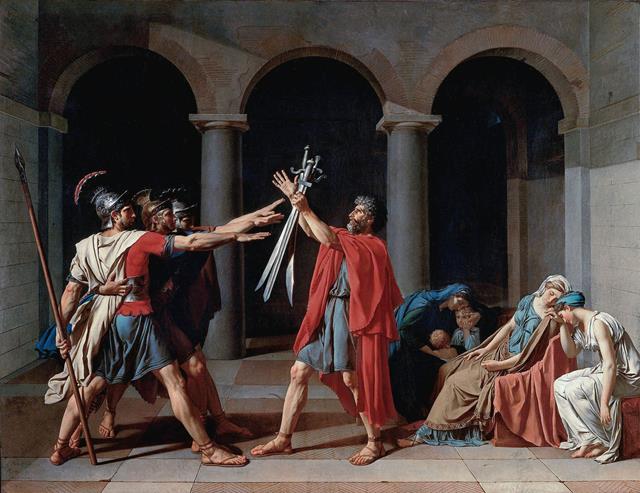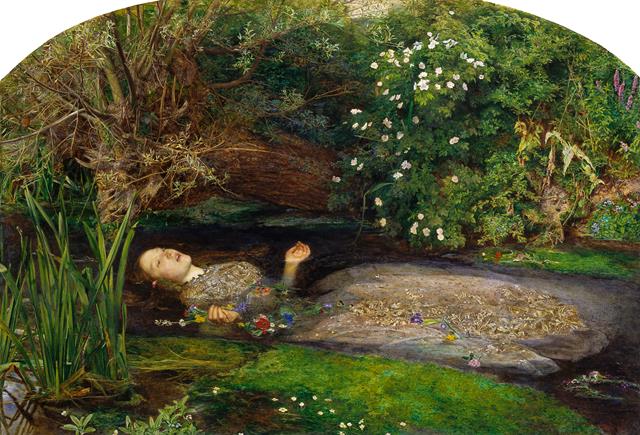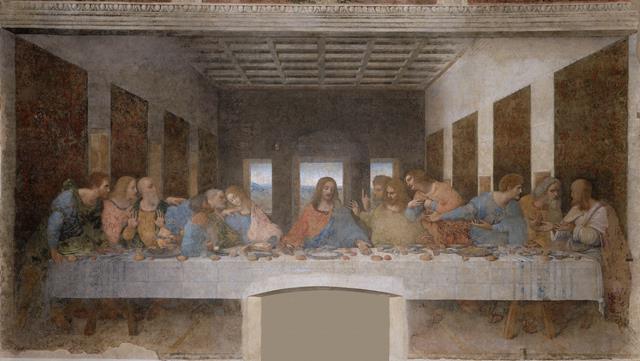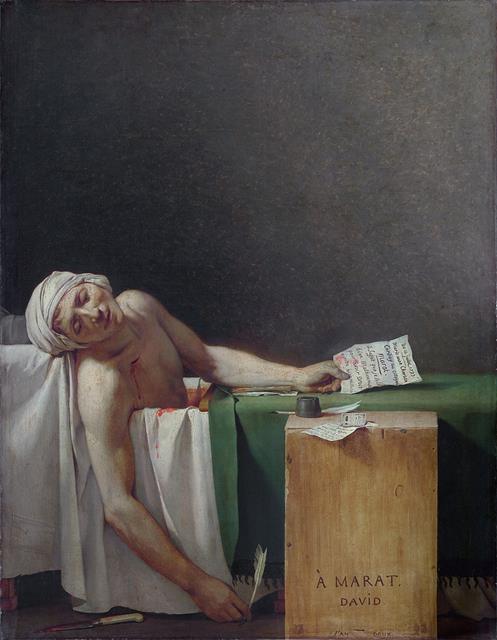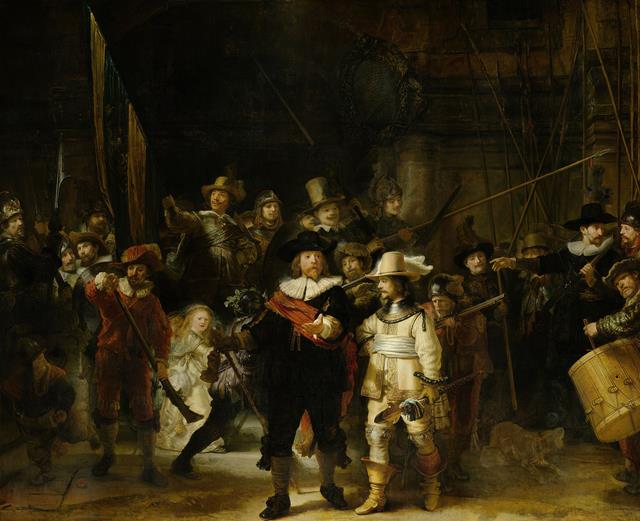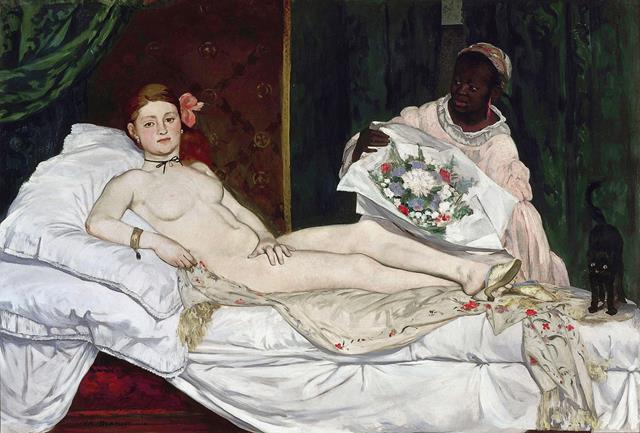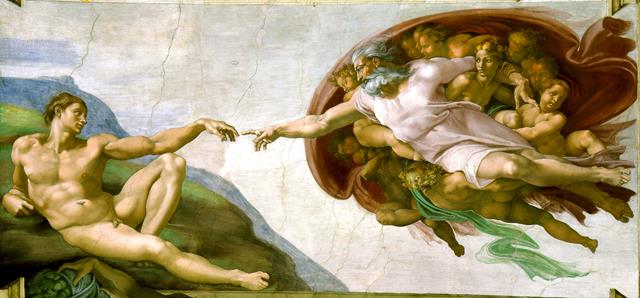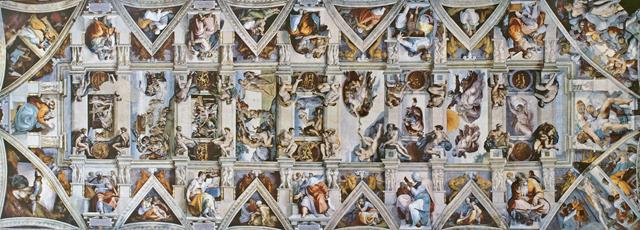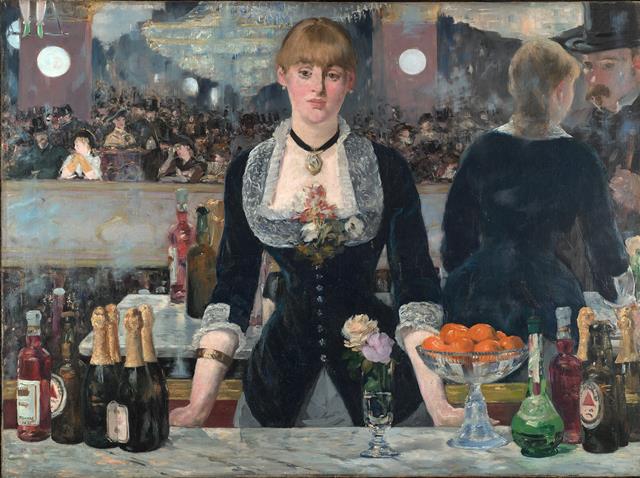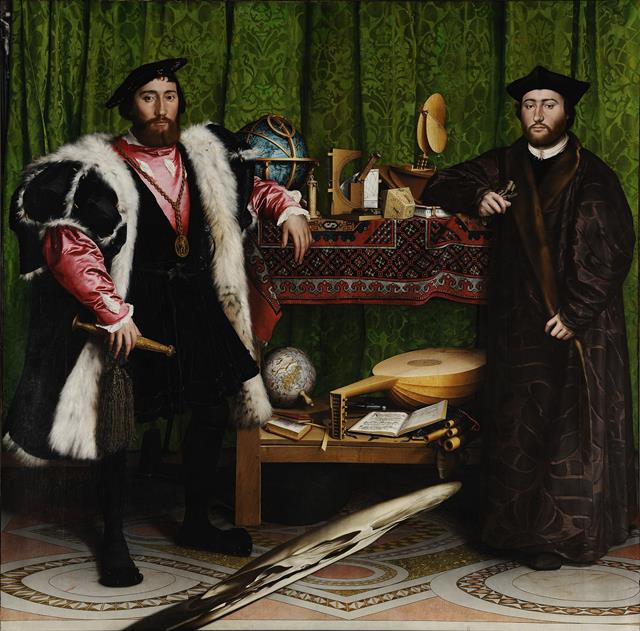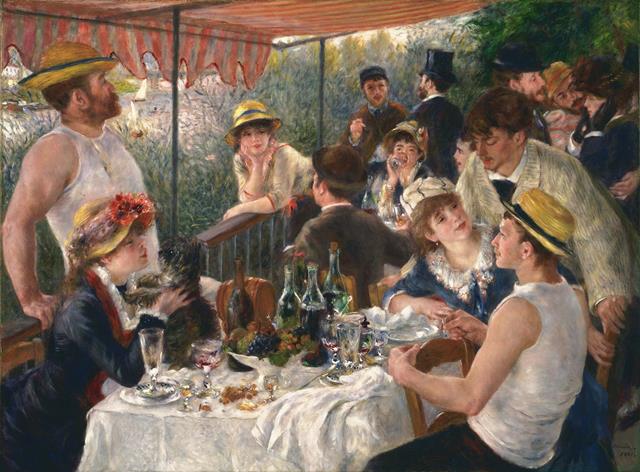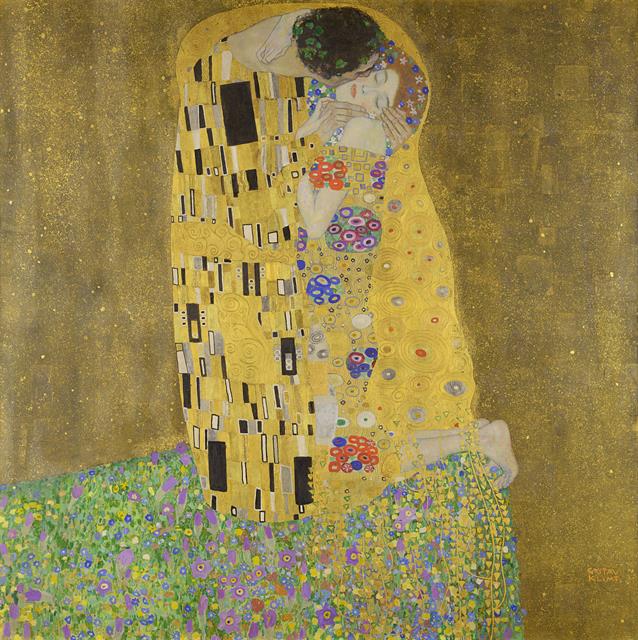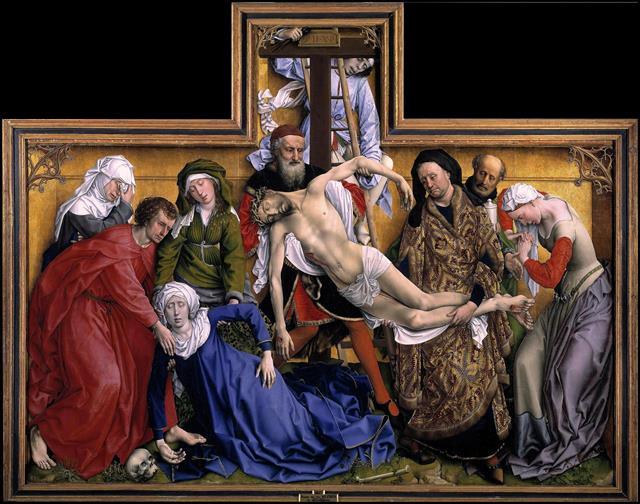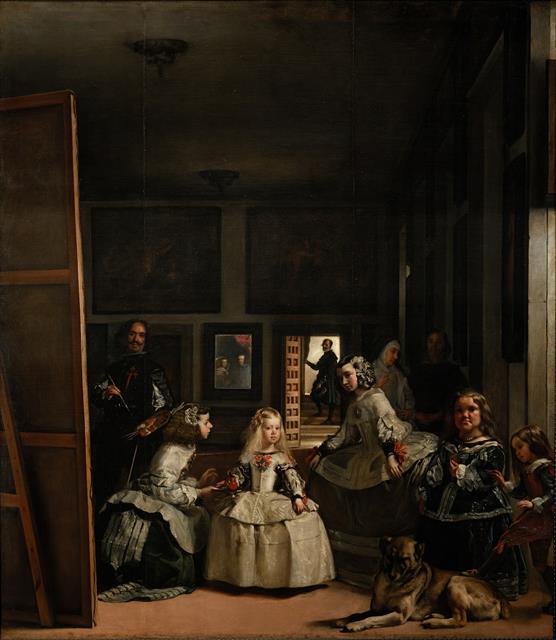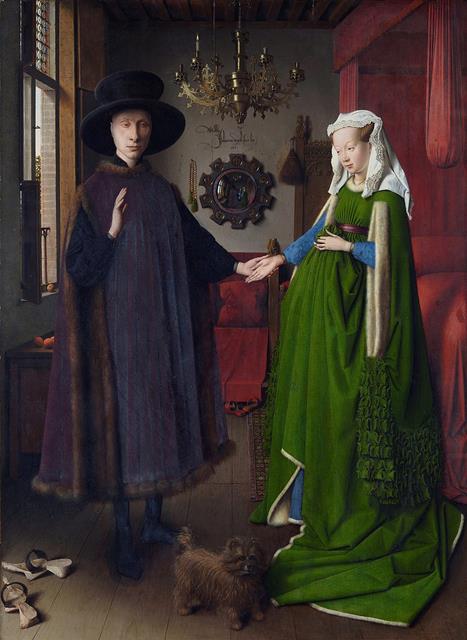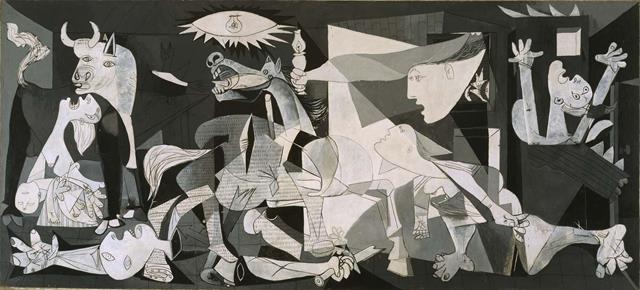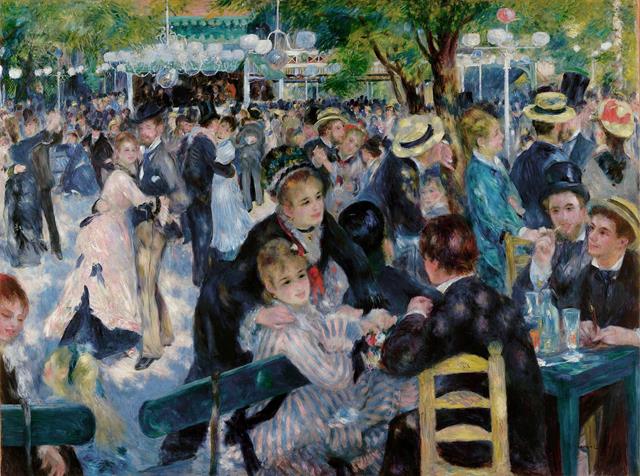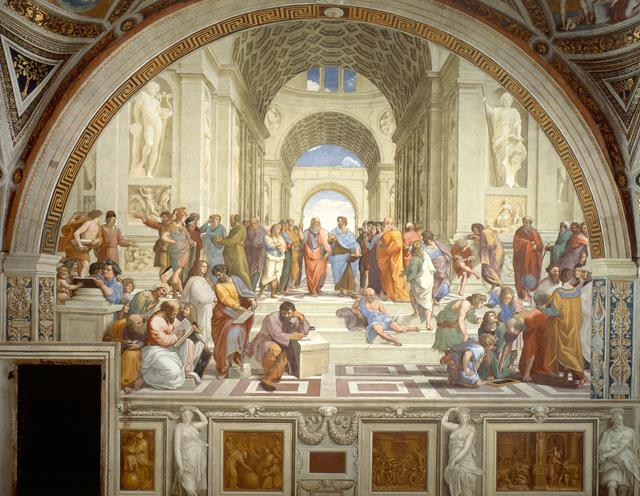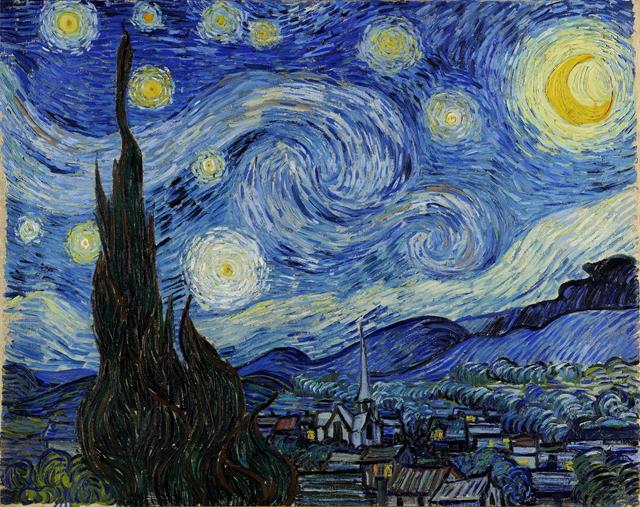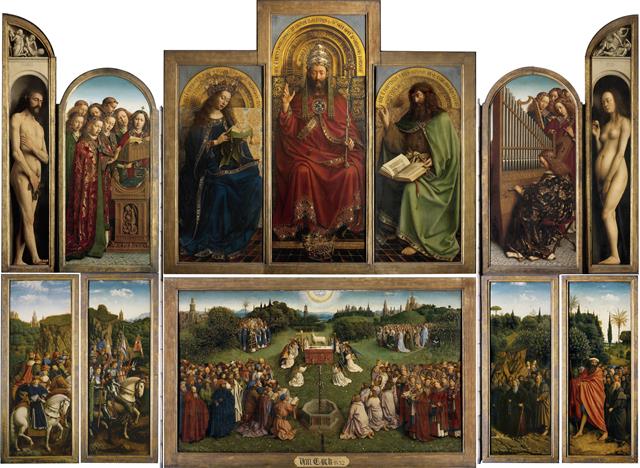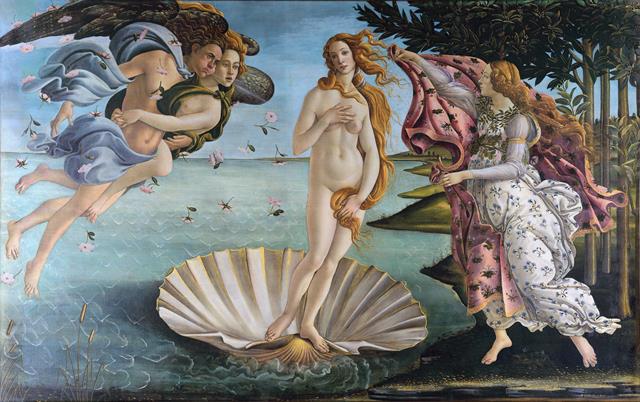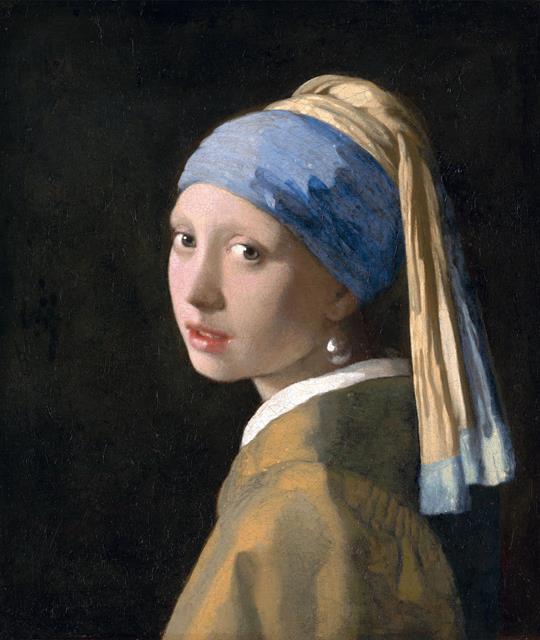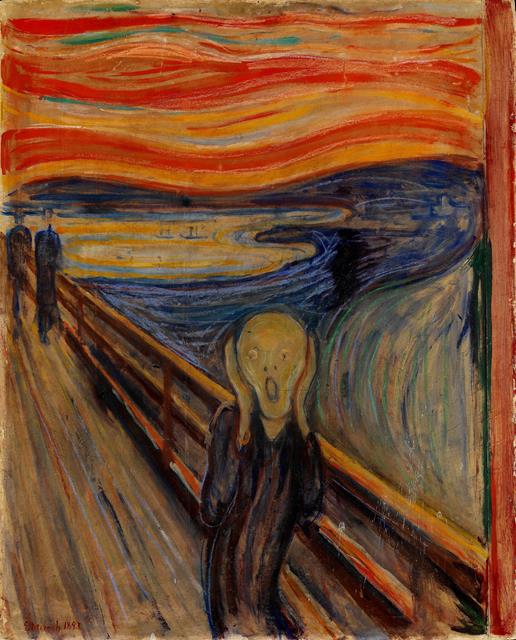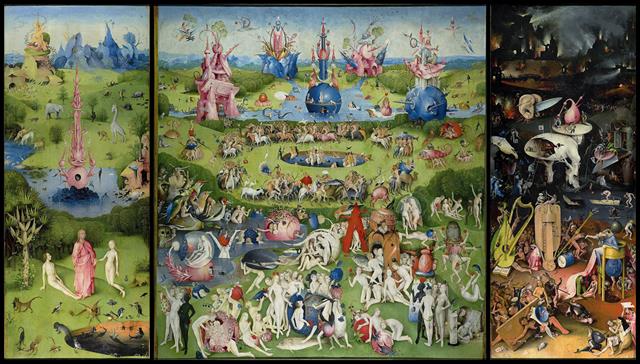Discover the Finest Artworks: Top 200 Paintings Worldwide (#25–1)
Explore our meticulously researched compilation showcasing the 200 greatest paintings globally.
Each painting is accompanied by thorough information, encompassing its dimensions, whereabouts, materials employed, its recurrence in experts' compilations, and our personal evaluation.
Table of Contents
ToggleCurrently you are exploring the final part (#25–1) of our list of the 200 best paintings in the world.
Click on the following links to discover #200–176, #175–151, #150–126, #125–101, #100–76, #75–51, #50–26.
Our list is carefully curated through an in-depth analysis of over 20 influential art books in various languages and multiple other reputable sources. For each painting, we disclose its frequency of mention across these sources (Experts’ Choice) and the rating assigned by our panel of experts (Our Score).
Uncover more information about our methodology and the selected art books behind this definitive top 200 list by clicking here.
#25 | Jacques-Louis David, "Oath of the Horatii"
Portrays Familial Loyalty Amidst Political Turmoil
The painting's subject matter draws from Roman history, depicting the solemn oath taken by the Horatii brothers to defend Rome against their neighboring city-state, Alba Longa.
The stark contrast between the figures and the architectural elements further emphasizes the tension between individual duty and collective responsibility, echoing the broader themes of nationalism and sacrifice prevalent during the neoclassical era.
Emerging in response to the excesses of the Rococo style, neoclassicism sought to imbue art with moral seriousness, rationality, and order.
Date: 1786
Dimensions: 329.8 cm × 424.8 cm (129.8 in × 167.2 in) | extremely large
Material: Oil on canvas
Collection: Musée du Louvre, Paris 🇫🇷
Art Movement: Impressionism, French 🇫🇷
Experts’ Choice: 8x
Our Score: 8.00
#24 | Sir John Everett Millais, "Ophelia"
A Quintessential Example of Pre-raphaelite Art with Meticulous Attention to Detail, Vibrant Colors, and Symbolic Elements
The painting received mixed reviews initially but later gained widespread acclaim for its innovation and emotional impact.
Characterized by detailed, vibrant compositions, and a focus on symbolism, the Pre-Raphaelite movement aimed to bring a renewed sincerity and truthfulness to art.
💡 The detailed depiction of flora in the painting includes over 100 different species of flowers, showcasing Millais' dedication to realism.
Date: 1851
Dimensions: 76.2 x 111.8 cm (30 x 44 in) | large
Material: Oil on canvas
Collection: Tate Britain, London 🇬🇧
Art Movement: Pre-Raphaelitism, British 🇬🇧
Experts’ Choice: 15x
Our Score: 8.00
#23 | Leonardo Da Vinci, "The Last Supper"
A Powerful Representation of Religious and Human Drama
The essence of "The Last Supper" lies in its portrayal of the moment Jesus announces the betrayal by one of his disciples.
The painting captures the emotional reactions of the twelve apostles, each expressing shock, disbelief, or inquiry.
The painting's historical and religious significance, coupled with its influence on subsequent art movements, solidifies its position as a cultural icon.
Date: 1498
Dimensions: 460 cm × 880 cm (181 in × 346 in) | gigantic
Material: Fresco
Collection: Convent of Santa Maria delle Grazie, Milan 🇮🇹
Art Movement: High Renaissance, Italian 🇮🇹
Experts’ Choice: 15x
Our Score: 8.00
#22 | Jacques-Louis David, "Death of Marat"
A Striking Symbol of the Revolutionary Ideals and the Complex Interplay between Personal Sacrifice and Political Change
This painting captures a pivotal historical moment during the French Revolution, depicting the artist's friend and murdered French revolutionary leader, Jean-Paul Marat.
Jacques-Louis David painted "Death of Marat" in 1793, just a few months after Marat's assassination.
The artist, Jacques-Louis David, presents Marat's lifeless body with intense emotional gravity, emphasizing the sacrifice of a passionate advocate for the revolution.
Date: 1793
Dimensions: 162 cm × 128 cm (64 in × 50 in) | very large
Material: Oil on canvas
Collection: Royal Museums of Fine Arts of Belgium, Brussels 🇧🇪
Art Movement: Neoclassicism, French 🇫🇷
Experts’ Choice: 17x
Our Score: 8.00
#21 | Rembrandt Harmenszoon van Rijn, "The Night Watch"
A Unique and Dynamic Composition, Breaking away from Traditional Static Group Portraits
Rembrandt's genius lies in his ability to infuse life and emotion into the canvas, turning a seemingly mundane subject into a timeless masterpiece.
The painting was originally even larger, but it was trimmed on all four sides in the 18th century.
The painting's current title, "The Night Watch," is a result of a dark varnish that led people to believe it depicted a nighttime scene.
Date: 1642
Dimensions: 363 cm × 437 cm (142.9 in × 172.0 in) | extremely large
Material: Oil on canvas
Collection: Rijksmuseum, Amsterdam 🇳🇱
Art Movement: Baroque, Dutch 🇳🇱
Experts’ Choice: 19x
Our Score: 8.00
#20 | Édouard Manet, "Olympia"
A Bold Departure from Traditional Norms
Manet's groundbreaking choice to portray a nude woman, modeled by the renowned Parisian model and painter Victorine Meurent, engaging directly with the viewer, marked a departure from traditional norms.
Notably, the inclusion of specific details in the painting, along with its title, unmistakably labeled her as a prostitute, challenging the conventional representations of goddesses or odalisques.
This provocative and unconventional approach stirred both admiration and controversy, positioning the artwork as a crucial moment in the shift from academic art to the era of modernism.
Date: 1863
Dimensions: 130.5 cm × 190 cm (51.4 in × 74.8 in) | very large
Material: Oil on canvas
Collection: Musée d’Orsay, Paris 🇫🇷
Art Movement: Realism, French 🇫🇷
Experts’ Choice: 18x
Our Score: 8.10
#19 | Michelangelo Buonarroti, "The Creation of Adam"
Capturing the Divine Drama of Creation with Unparalleled Artistry
The composition, with the figures reaching towards each other, creates a powerful visual tension that encapsulates the essence of creation and the intertwining of the divine and earthly. The scene is part of a larger narrative depicting the creation of the world, as described in the Book of Genesis.
Intricate details, such as the surrounding figures and architectural elements, showcase Michelangelo's mastery of both anatomy and spatial composition.
Date: 1512
Dimensions: 280 × 570 cm (110 x 224 in) | gigantic
Material: Fresco
Collection: Vatican Museums and Galleries, ceiling of the Sistine Chapel, Vatican City 🇻🇦
Art Movement: High Renaissance, Florentine School 🇮🇹
Experts’ Choice: 13x
Our Score: 8.30
#18 | Michelangelo Buonarroti, "The Sistine Chapel Ceiling"
A Stunning Visual Chronicle of Key Events from the Book of Genesis
The frescoes cover the entire ceiling of the Sistine Chapel, providing a breathtaking immersive experience.
The entire ceiling covers an area of about 5,800 square feet (538 square meters), making it one of the largest and most ambitious artistic undertakings in history.
Each fresco tells a distinct story, from the tumultuous energy of the Creation of Sun, Moon, and Plants to the poignant drama of the Last Judgment. Together, these elements harmonize into a symphony of visual splendor, rendering the Sistine Chapel Ceiling a timeless masterpiece.
Date: 1508-1512
Dimensions: 40 x 14 m (1574 x 551 in) | gigantic
Material: Fresco
Collection: Vatican Museums and Galleries, ceiling of the Sistine Chapel, Vatican City 🇻🇦
Art Movement: High Renaissance, Florentine School 🇮🇹
Experts’ Choice: 13x
Our Score: 8.30
#17 | Édouard Manet, "A Bar at the Folies-Bergère"
A Vibrant Insight into Parisian Nightlife in the Late 19th Century
"A Bar at the Folies-Bergère" skillfully captures the complexities of modern life in late 19th-century Paris, portraying the bustling atmosphere of the Folies-Bergère, a popular entertainment venue.
The reflection in the mirror doesn't align with the actual space depicted in the painting, adding a mysterious element. The distant gaze of the barmaid further contributes to the painting's enigmatic quality, prompting contemplation on societal issues and the role of women in that era.
The work also exhibits elements that foreshadow Impressionism, showcasing Manet's influence on subsequent art movements.
Date: 1882
Dimensions: 96 cm × 130 cm (37.8 in × 51.2 in) | large
Material: Oil on canvas
Collection: Courtauld Institute of Art Gallery, London 🇬🇧
Art Movement: Realism, French 🇫🇷
Experts’ Choice: 16x
Our Score: 8.30
#16 | Hans Holbein the Younger, "The Ambassadors"
An Innovative Approach to Composition
The painting features two ambassadors, Jean de Dinteville and Georges de Selve, surrounded by objects that represent various aspects of human knowledge, including science, music, and religion.
The incorporation of anamorphic perspective, seen in the distorted skull at the bottom of the painting, reflects Holbein's innovative approach to composition. The anamorphic skull serves as a memento mori, reminding viewers of the inevitability of death.
Date: 1533
Dimensions: 207 cm × 209.5 cm (81 in × 82.5 in) | very large
Material: Oil on canvas
Collection: National Gallery, London 🇬🇧
Art Movement: Northern Renaissance, German 🇩🇪
Experts’ Choice: 21x
Our Score: 8.30
#15 | Pierre-Auguste Renoir, "Luncheon of the Boating Party"
A Portrayal of Leisure, Camaraderie, and the Joy of Shared Moments
The composition features Renoir's friends and acquaintances, providing a glimpse into Parisian social life of the time. The composition is considered a snapshot of the Belle Époque era, capturing the spirit of optimism and leisure in late 19th-century Paris.
In essence, the painting celebrates the simple pleasures of life and the beauty found in human connection.
Date: 1880
Dimensions: 129.9 cm × 172.7 cm (51 in × 68 in) | very large
Material: Oil on canvas
Collection: Phillips Collection, Washington 🇺🇸
Art Movement: Impressionism, French 🇫🇷
Experts’ Choice: 15x
Our Score: 8.40
#14 | Gustav Klimt, "The Kiss"
Capturing the Essence of Love and Passion
The painting showcases Klimt's distinctive Art Nouveau style, characterized by intricate patterns, symbolism, and a lavish use of gold leaf.
The composition, featuring a couple locked in a tender embrace, captures the essence of love and passion.
The male figure in the painting is believed to be Klimt himself, while the female figure is thought to be his muse and companion, Emilie Flöge.
Date: 1908–1909
Dimensions: 180 × 180 cm (70.8 × 70.8″) | very large
Material: Oil and gold on canvas
Collection: Österreichische Galerie Belvedere, Vienna 🇦🇹
Art Movement: Art Nouveau, Austrian 🇦🇹
Experts’ Choice: 18x
Our Score: 8.40
#13 | Rogier van der Weyden, "The Descent from the Cross"
A Testament to Van der Weyden’s Mastery in Storytelling through Art
The painting captures the grief and despair of those mourning the body of Christ as it is lowered from the cross. The figures, each with distinctive facial expressions and body language, convey a deep emotional connection to the event and showcase the artist's technical excellence.
The composition skillfully balances the divine and the human, creating a powerful narrative that transcends its religious context.
Date: c. 1435
Dimensions: 220 x 262 cm (86 x 103 in) | very large
Material: Oil on oak panel
Collection: Museo Nacional del Prado, Madrid 🇪🇸
Art Movement: Northern Renaissance, Flemish 🇧🇪
Experts’ Choice: 20x
Our Score: 8.50
#12 | Diego Velázquez, "Las Meninas"
Inviting Viewers to Question the Nature of Art, Reality, and the Relationships between the Subjects and the Observer
This painting also known as "The Maids of Honor" in English captures a moment in the Spanish court, featuring Infanta Margaret Theresa surrounded by her maids of honor.
The use of a mirror in the background reflects the unseen presence of the King and Queen, introducing a layer of complexity and ambiguity.
The artist's inclusion within the composition challenges traditional conventions, blurring the boundaries between the depicted scene and the act of painting itself.
Date: 1656
Dimensions: 318 cm × 276 cm (125.2 in × 108.7 in) | extremely large
Material: Oil on canvas
Collection: Museo Nacional del Prado, Madrid 🇪🇸
Art Movement: Baroque, Spanish 🇪🇸
Experts’ Choice: 20x
Our Score: 8.50
#11 | Jan van Eyck, "The Arnolfini Portrait"
One of the Most Original and Complex Paintings in Western Art
The composition is a marvel, with the artist's keen eye for detail evident in every element, from the reflections in the mirror to the textures of the textiles. Symbolism permeates every aspect of the composition, from the oranges representing fertility to the dog symbolizing loyalty and fidelity in marriage.
Van Eyck's masterful use of oil paint elevates the Portrait of Giovanni Arnolfini and His Wife to a level of luminosity and richness unparalleled in its time.
Date: 1434
Dimensions: 82.2 cm × 60 cm (32.4 in × 23.6 in) | medium-sized
Material: Oil on oak panel of 3 vertical boards
Collection: National Gallery, London 🇬🇧
Art Movement: Northern Renaissance, Flemish 🇧🇪
Experts’ Choice: 21x
Our Score: 8.50
#10 | Pablo Picasso, "Guernica"
A Powerful Anti-war Statement, Depicting the Horrors of the Bombing of the Town of Guernica during the Spanish Civil War
Picasso created the painting in response to the bombing of the Spanish town of Guernica in 1937 during the Spanish Civil War. Guernica was bombed by Nazi Germany and Fascist Italy at the request of the Spanish Nationalists.
The imagery in the painting includes powerful symbols such as a grieving mother, a dead soldier, and a bull representing brutality. The composition is deliberately chaotic, with disjointed figures and distorted shapes contributing to the overall sense of anguish.
"Guernica" has become an enduring symbol of the anti-war movement and a testament to the artist's commitment to social and political causes.
Date: 1937
Dimensions: 349.3 cm × 776.6 cm (137.4 in × 305.5 in) | gigantic
Material: Oil on canvas
Collection: Museo National Centro de Arte Reina Sofia, Madrid 🇪🇸
Art Movement: Cubism, Surrealism, Spanish 🇪🇸
Experts’ Choice: 16x
Our Score: 8.60
#9 | Pierre-Auguste Renoir, "Dance at Moulin de la Galette"
A Skillful Portrayal of the Joy and Spontaneity of a Dance at a Popular Venue in Montmartre
Renoir skillfully captures the lively atmosphere of a dance at the Moulin de la Galette, a popular venue in Montmartre. The play of sunlight on the dancers' faces and dresses infuses the scene with a sense of warmth and spontaneity.
Beyond its aesthetic brilliance, the work serves as a snapshot of the social interactions between different classes, showcasing the artist's keen observation and ability to convey the spirit of the moment.
Date: 1876
Dimensions: 131 cm × 175 cm (52 in × 69 in) | very large
Material: Oil on canvas
Collection: Musée d’Orsay, Paris 🇫🇷
Art Movement: Impressionism, French 🇫🇷
Experts’ Choice: 13x
Our Score: 8.70
#8 | Raphael (Raffaello Sanzio), "School of Athens"
Encapsulating the Renaissance Fascination with Classical Ideals, Human Potential, and the Celebration of Intellectual Curiosity
The painting skillfully brings together various philosophers, mathematicians, and scientists from different historical periods, creating a visual dialogue that reflects the intellectual pursuits of humanity.
The use of perspective in the artwork is groundbreaking, with the architectural elements and vanishing points contributing to a sense of depth and realism.
Date: 1509–1511
Dimensions: 500 cm × 770 cm (200 in × 300 in) | gigantic
Material: Fresco
Collection: Vatican Museums and Galleries, Vatican City 🇻🇦
Art Movement: High Renaissance, Florentine School 🇮🇹
Experts’ Choice: 20x
Our Score: 8.70
#7 | Vincent van Gogh, "The Starry Night"
A Dreamlike and Otherworldly Atmosphere That Resonates with Viewers on a Deeply Emotional Level
Van Gogh's innovative use of color and texture, exemplified by the bold blues and swirling patterns, marked a departure from traditional representational art. The painting's emotional resonance, stemming from the artist's turbulent life, adds depth and complexity.
Its iconic imagery has become synonymous with the artist's unique style, influencing countless painters and art enthusiasts.
Date: 1889
Dimensions: 73.7 cm × 92.1 cm (28.7 in × 36 1⁄4 in) | medium-sized
Material: Oil on canvas
Collection: Museum of Modern Art (MoMA), New York City 🇺🇸
Art Movement: Post-Impressionism, Dutch 🇳🇱
Experts’ Choice: 12x
Our Score: 8.90
#6 | Jan and Hubert van Eyck, "Ghent Altarpiece"
The First Major Oil Painting in Art History
The Ghent Altarpiece is considered the first major oil painting in art history and its intricate details and technical brilliance showcase the Northern Renaissance style.
The piece is highly regarded for its monumental scale and complex composition, portraying biblical narratives with exceptional realism.
The meticulous attention to detail in the depiction of fabrics, textures, and facial expressions further contributes to its acclaim as one of the world's treasures.
Date: 1432
Dimensions: 350 x 461 cm (137 x 181 in) (wings open) | extremely large
Material: Oil and tempera on oak wood
Collection: Saint Bavo Cathedral, Ghent 🇧🇪
Art Movement: Northern Renaissance, Flemish 🇧🇪
Experts’ Choice: 14x
Our Score: 9.00
#5 | Sandro Botticelli, "Birth of Venus"
The Enduring Beauty of Venus as a Symbol of Love and Beauty
The depiction of Venus was groundbreaking for its time, as it presented a nude female figure in a non-religious context.
The beguiling composition, rich in allegorical symbolism, invites viewers into a realm where mythical storytelling converges with sublime aesthetics, leaving an indelible impression of Victorian romanticism and artistic finesse.
Date: c. 1484–1486
Dimensions: 172.5 cm × 278.9 cm (67.9 in × 109.6 in) | extremely large
Material: Tempera on canvas
Collection: Galleria degli Uffizi, Florence 🇮🇹
Art Movement: Early Renaissance, Florentine School 🇮🇹
Experts’ Choice: 19x
Our Score: 9.00
#4 | Johannes Vermeer van Delft, "Girl with a Pearl Earring"
Simplicity and Lack of Overt Narrative Give the Artwork a Timeless Quality
The composition, with the girl positioned against a dark background, draws attention to her enigmatic expression and the captivating glint in her eyes, creating a sense of intimacy and mystery.
Furthermore, the simplicity and elegance of the subject's attire and the absence of extraneous details contribute to the timeless and universal appeal of the artwork.
Lastly, the singular focus on the girl and her pearl earring elevates the painting to an iconic status, encapsulating the essence of Vermeer's artistic genius.
Date: 1665
Dimensions: 44.5 cm × 39 cm (17.5 in × 15 in) | small
Material: Oil on canvas
Collection: Mauritshuis, The Hague 🇳🇱
Art Movement: Baroque, Dutch 🇳🇱
Experts’ Choice: 15x
Our Score: 9.10
#3 | Edvard Munch, "The Scream" (Nasjonalmuseet Version)
An Iconic Portrayal of Intense Despair
Date: 1893
Dimensions: 91 cm × 73.5 cm (36 in × 28.9 in) | medium-sized
Material: Oil, tempera, pastel and crayon on cardboard
Collection: National Gallery, Oslo 🇳🇴
Art Movement: Proto-Expressionism, Norwegian 🇳🇴
Experts’ Choice: 14x
Our Score: 9.30
#2 | Hieronymus Bosch, "The Garden of Earthly Delights"
A Surreal Landscape That Combines Religious Symbolism with Scenes of Everyday Life, Creating a Dreamlike and Enigmatic Composition
Bosch's work features a plethora of strange and fantastical creatures, including hybrid beings and imaginative landscapes.
Interpretations of the painting vary, with some seeing it as an allegory for the consequences of sinful behavior.
The painting serves as a moral warning, inviting viewers to reflect on their actions and choices in the context of medieval Christian beliefs.
Date: 1503–1515
Dimensions: 205.5 cm × 384.9 cm (81 in × 152 in) | extremely large
Material: Oil paint on oak panels
Collection: Museo Nacional del Prado, Madrid 🇪🇸
Art Movement: Northern Renaissance, Netherlandish 🇷🇺
Experts’ Choice: 20x
Our Score: 9.40
#1 | Leonardo Da Vinci, "Mona Lisa"
The Most Famous Painting in the World Goes beyond a Mere Representation of a Woman; It Captures a Moment of Introspection and Mystery
The enigmatic smile of the subject, Lisa del Giocondo, has captivated viewers for centuries, adding a layer of mystery and intrigue to the artwork.
The Mona Lisa's subtle use of color and light further enhances its beauty, making it a pinnacle of Renaissance art.
The theft of the painting in 1911 contributed to its fame, as it was recovered in 1914.
Date: c. 1503–1506
Dimensions: 77 cm × 53 cm (30 in × 21 in) | medium-sized
Material: Oil on poplar panel
Collection: Musée du Louvre Paris 🇫🇷
Art Movement: High Renaissance, Italian 🇮🇹
Experts’ Choice: 20x
Our Score: 9.80
This was the last part (#25–1) of our list of the 200 best paintings in the world.
🌊 Click on the following links to discover #200–176, #175–151, #150–126, #125–101, #100–76, #75–51, #50–26.
Please check out also the results of our careful analysis to determine the Best Cities in the World to Visit as a Tourist in 2024 and our list of the Best Aquariums in the World in 2024.
We also created a video of the Top 50 Cities in the World 2024 (ranked by 14 criteria), Thank you for watching and sharing!

